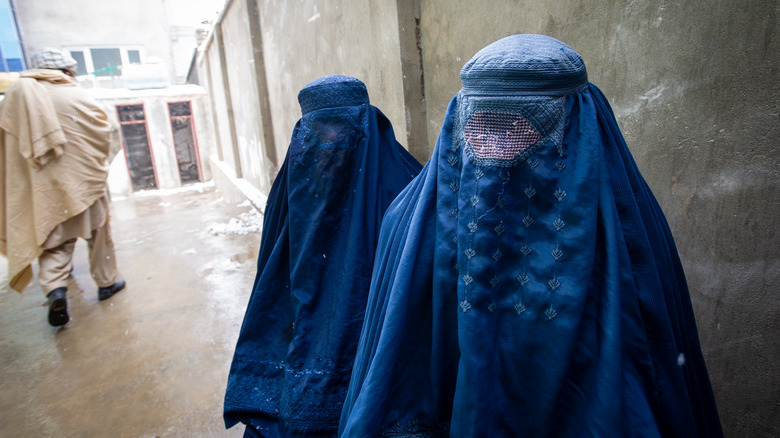What Really Happens When A Fatwa Is Issued?
Though complicated, just like many governments and societies in the world, Islamic culture and state vary considerably in customs and belief practices. As PBS notes, Islam is diverse in lifestyle and cannot be typified as any one thing. For example, out of the 57 Muslim countries, absolute sharia criminal law is only applicable to around three (via Reuter). Islamic criminal law has come to signify the whole of the Islamic world, even though most of its severities only happen in a few places.
Another misunderstood aspect of Islam is Sharia. As Britannica explains, Sharia is simply the religious law that constitutes an Islamic government. But what that fully entails is complicated to pin down, as Islam is quite diverse, and not everyone agrees on the same things. For example, fatwahs are actually more nuanced than people think, and they don't work according to stereotypes.
What is Islamic law?
Before explaining what Islamic law is, it is very important to know that it can vary drastically. Interpretations of both Islamic law and the Qu'ran are highly dependent on not just the country and expression of religion but also things like local customs. So there really is no one-size fits all explanation of Islamic law that can cover all of its nuances and complexities. With that being said, a few general things can be succinctly explained. As Britannica explains, Islamic law, also known as Sharia, is basically God's command as expressed by the Islamic state. This jurisprudence is directly based on Islamic scriptures from the Hadith and Qu'ran.
As said by the BBC, Sharia sometimes has a very big influence on how Muslim people go about their lives. The simple act of hanging out with a friend might be dictated by Sharia, and a person may ask an expert on Sharia for what they can or can't do. Sharia also influences finance, family law, marriage, and more. Much of Sharia is carried out by Islamic jurists, who can issue rulings and guidance, along with fatwa.
What happens when a fatwa is issued?
In its simplest sense, a fatwa is merely an interpretation, ruling, or legal opinion given under Islamic law. As Britannica says, fatwas mostly happen questions about Islamic law are raised, of which then an expert or authority may issue one. There is a common misconception that a fatwa is absolute — that, once issued, cannot be broken, and is absolutely binding. This is misleading, as fatwas do not always have to be followed by the requester, and other fatwas can be sought out as well.
As The Indian Express reports, fatwas are typically issued by Islamic scholars, or authorities on Islamic law. The biggest misconception of fatwas is that they are death sentences. This is generally not true and is basically a stereotype of Islamic law. In general, fatwas can be challenged and even refuted as un-Islamic, which often is the case when reactionary fatwas happen. So, a fatwa is neither binding nor universal, which means that it's not always clear what could happen.


